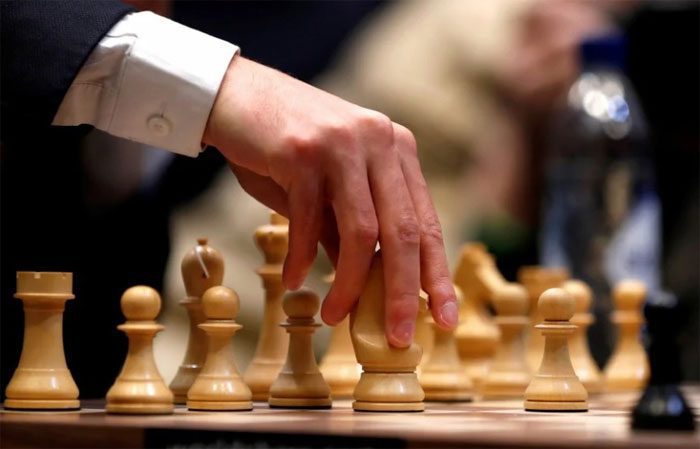A new study conducted by experts from Monash University (Australia) has found that certain cognitive-stimulating recreational activities, such as playing chess and crossword puzzles, are associated with a reduced risk of dementia in older adults.

Playing chess is related to a decreased risk of dementia in older adults. (Photo: REUTERS).
According to the research published in the JAMA Network Open journal on July 15, scientists studied the concentration levels of 10,318 individuals aged 70 and older in Australia. Those suspected of having dementia were identified through regular check-ups and discussions. Researchers also gathered information on the social activities and cognitive-stimulating activities of participants, as well as their interactions within social networks through questionnaires.
The study found that more frequent engagement in activities aimed at adult literacy and other cognitive activities, such as playing games, card games, chess, and solving crossword puzzles or other puzzles, could reduce the risk of dementia by 9.0% to 11.0%. Meanwhile, creative hobbies like crafting, knitting, painting, and more passive activities like reading reduced the risk of this disease by 7%.
Data from the World Health Organization indicates that there are currently over 55 million people globally living with dementia, with approximately 10 million new cases confirmed each year. The disease is more prevalent among individuals aged 65 and older.
Scientist Joanne Ryan, the lead author of the study and an Associate Professor at Monash University, emphasized that health sectors in various countries need to prioritize strategies to prevent or mitigate the risk of dementia.
She pointed out that the findings of this research suggest that actively applying previous knowledge could play a more significant role than passive recreational activities in helping older adults reduce their risk of dementia. This expert stressed the importance of keeping the brain actively engaged.


















































